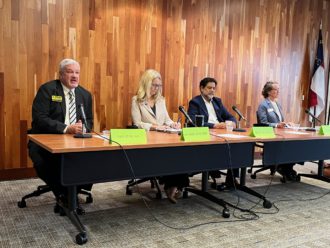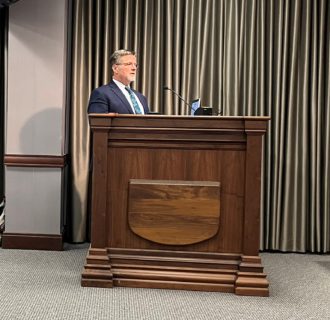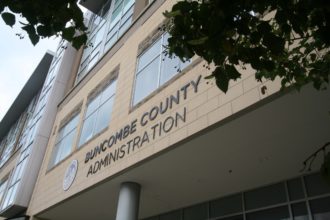As part of Xpress‘ annual Kids Issue series, we reached out to the members of Asheville City Council and the Buncombe County Board of Commissioners to share their childhood recollections. Buncombe County Commissioner Terri Wells shares her tales.


As part of Xpress‘ annual Kids Issue series, we reached out to the members of Asheville City Council and the Buncombe County Board of Commissioners to share their childhood recollections. Buncombe County Commissioner Terri Wells shares her tales.

For Xpress’ annual Wellness Issue series, we spoke with Buncombe County Commissioner Terri Wells about the Asheville Botanical Gardens, hiking and her go-to soundtrack — Prince.

The 2024 races for Buncombe County Board of Commissioners are unusual for their variety: there is a race for commission chair featuring an incumbent, a commission seat race featuring an incumbent and another commission seat race with two candidates who are new to public office.

Candidates talk about spending, support for education and what regulating short-term rentals should look like.

Community members who spoke with Xpress say they are relieved that the Swannanoa Library has been saved from the chopping block for now. But many questions still remain about its future as well as who will be involved in the decision-making process moving forward.

“Every time I’ve contacted her, she has been responsive: listening carefully, asking and answering questions, and lending support as needed.”

“She is smart, organized and hardworking. Her first-term work on the Board of Commissioners has built her knowledge of finance, budgets and public policy.”

“Terri is a consensus builder. She brings voters from all sides of the aisle together.”

“She advocates for environmental stewardship, public education and rural broadband.”

The event included the presentation of this year’s John Cram Arts Leadership Award to Gail and Brian McCarthy.

The measure had first been discussed publicly by the commissioners in February; at an April meeting, Commissioner Terri Wells said she’d floated the proposal to county staff after hearing complaints from Cherokee County residents about noise and pollution created by the facilities.

Local advocates say they are skeptical that yet another study will make a difference.

The county plans to spend $844,000 on new tax assessment initiatives over this fiscal year and the next. Actions include asking Buncombe residents to report improvements to their homes, buying software to double-check the valuations county staffers give to homes and reaching out to residents to help them challenge their property tax values.

This November, Buncombe County voters will determine if the county pursues up to $70 million in bonds. If approved, $30 million would go toward land conservation and greenways, while $40 million would fund up to 3,100 affordable housing units.

The resolution would take effect if either or both of the bond referendums up for November votes were approved. The oversight committee would monitor investments made with up to $70 million in bond money and ensure the funds were being used to meet Buncombe’s goals: conserve 20% of county land and increase affordable housing by up to 3,150 units, both by 2030.

The county’s ad hoc reappraisal committee, tasked with reviewing allegations that Buncombe’s tax assessment process was unfair to low-income residents and communities of color, presented its recommendations to the board. And commissioners approved annual funding for reparations, honoring a request from the joint Asheville-Buncombe Community Reparations Commission.

At the recommendation of the county board’s Environment & Energy Stewardship Subcommittee, which includes board Chair Brownie Newman along with Commissioners Parker Sloan and Terri Wells, members will vote on whether to commit to conserving 20% of Buncombe’s total acreage by 2030.

“The funds would be used to help farmers and others in the county place their grasslands and forests under conservation easements to preserve them for future generations.”

“There has never been what seemed like such a crucial time for understanding how we can continue to feed, clothe and sustain ourselves without crushing the natural world to death.”

“Faced with significant development pressures, we must do what we can to protect some of the region’s natural habitat and biodiversity, as well as our most productive farmland.”

Local restaurant owners face increasing challenges and difficult decisions as Buncombe County lowers dining room capacity to 30%.